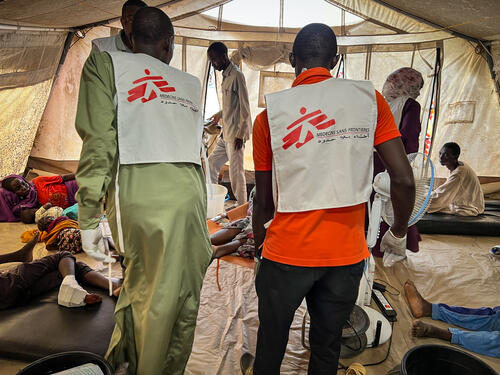Exploring the health consequences of the UK’s plan to expel people seeking asylum to Rwanda
Doctors have united to demand an end to the Government’s attempts to deport people seeking asylum to Rwanda, condemning the policy as ‘inhumane, expensive and ineffective’.
Medical organisations including Médecins Sans Frontières/Doctors Without Borders (MSF), the British Medical Association (BMA) and Medical Justice have joined forces in calling on ministers to abandon their ongoing attempts to remove asylum seekers from the UK, warning that their efforts are damaging the health and wellbeing of some of the most vulnerable people in society.
The united front comes as the High Court ruled on 19 December that the Government’s plan to remove people seeking asylum in the UK to Rwanda was lawful and ‘consistent with the Refugee Convention’ and legal obligations set out in the Human Rights Act.
Indefensible policy
In an open letter to prime minister Rishi Sunak, home secretary Suella Braverman, and health secretary Steve Barclay, the medical community emphasises the threat of forced removal has exacerbated mental health conditions including PTSD, labelling the policy as indefensible on ‘medical, ethical and humanitarian grounds’.
Speaking at a joint webinar event on 15 December to discuss the health consequences of the UK’s plan to expel people seeking asylum to Rwanda, Reem Mussa, coordinator of MSF's Forced Migration Team, gave an overview of the 20-year history of Australia's offshore processing and detention policy, upon which the UK's Rwanda approach has been modelled.
Sadly, what was once seen as an aberration, the Australian model is increasingly becoming an approach that states, including the UK, are seeking to replicate.
Indefinite despair
MSF worked on the Pacific island of Nauru, where people seeking asylum in Australia were forcibly expelled, from 2017 and 2018. We provided mental health care to refugees and people seeking asylum as well as the local Nauruan population before we were forced to leave.

Our work saves lives
There, we saw and treated severe levels of mental health suffering; of the 208 refugee and asylum seeker patients, 60 percent were diagnosed with severe depression, followed by anxiety, PTSD, complex trauma and psychosis. Many of our patients presented with suicidal ideation and attempts and self-harm, post-traumatic stress disorder, depression and anxiety.
Children on Nauru suffered from serious mental health conditions including Resignation Syndrome and children as young as nine were found to be self-harming and attempting suicide. One of the main stressors on refugee and asylum seeker patients cited was having no control over their lives, as well as family separation.
Reem’s presentation begins at 35:06 in the above webinar.
